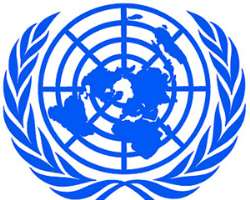Promoting Access to Low-Carbon Development in Africa: 5th Africa Carbon Forum, Cote d'Ivoire, 3-5 July 2013

BONN, Germany, April 16, 2013/African Press Organization (APO)/ -- As part of their work to support African nations along a low-emission path to development, partner UN agencies, the International Emissions Trading Association (IETA) and the World Bank group are hosting the fifth Africa Carbon Forum in Cote d'Ivoire, on 3-5 July 2013.
This annual event is an opportunity for participants to meet project developers and buyers of carbon credits in Africa, through formal presentations and more informally in matchmaking sessions that bring together interested parties to discuss possible projects under the clean development mechanism (CDM).
"The African continent has historically not benefited much from the CDM," said Christiana Figueres, Executive Secretary of the United Nations Framework Convention on Climate Change (UNFCCC). "The current state of the market opens the possibility for African nations to increase their participation, in particular via a programmatic approach that caters to smaller projects. The Africa Carbon Forum aims to further improve the access to and spread of the CDM on the continent."
The CDM allows emission reduction projects in developing countries to earn certified emission reductions (CERs), commonly known as carbon credits, each equivalent to one tonne of carbon dioxide. CERs can be traded and sold, and used by industrialized countries to meet a part of their emission reduction targets under the Kyoto Protocol. Participants will learn about the latest policy developments on national and international levels, such as prospects for new market-based mechanisms to enhance the cost effectiveness of climate mitigation actions. A variety of mitigation instruments will be discussed, including domestic cap-and-trade, low emissions development strategies and nationally appropriate mitigation actions.
The forum builds on a growing interest in pursuing low-carbon pathways in Africa, which now hosts 133 CDM projects in 23 countries. Beyond a project-by-project approach, Africa is increasingly looking to scale up its emission reductions by developing programmes of activities (PoAs). PoAs are particularly suited to small or micro-scale projects, which are common in Africa.
An unlimited number of such projects can be administered under a 'programme umbrella', reducing administration and transaction costs, and making the mechanism more attractive and accessible to least developed countries. Of the 129 PoAs registered globally to date, almost a third are in Africa.
The forum is organized under the umbrella of the Nairobi Framework. Launched in 2006 by then Secretary-General Kofi Annan, the Nairobi Framework aims to assist developing countries, especially those in sub-Saharan Africa, to improve their level of participation in the CDM.
The Framework partners are the UNFCCC, the United Nations Environment Programme along with the UNEP Risoe Centre, the IETA, the United Nations Development Programme (UNDP), the World Bank and the Africa Development Bank.
Africa Carbon Forum 2013:
http://africacarbonforum.com/2013/english/objective.htm
About the CDM
The clean development mechanism (CDM) allows emission-reduction projects in developing countries to earn certified emission reductions (CERs), each equivalent to one tonne of CO2. CERs can be traded and sold, and used by industrialized countries to meet a part of their emission reduction targets under the Kyoto Protocol. With more than 6,500 registered projects in 85 developing countries, the CDM has proven to be a powerful mechanism to deliver finance for emission-reduction projects and contribute to sustainable development.
See also:
www.cdm.unfccc.int
Twitter: @UN_ClimateTalks, @UN_CarbonMechs
Facebook: facebook.com/UNclimatechange, facebook.com/UNcarbonmechs
UNFCCC Executive Secretary Christiana Figueres on Twitter: @CFigueres
www.worldbank.org
Twitter: @wbclimatechange
Facebook: facebook.com/worldbank
www.unep.org and www.uneprisoe.org
Twitter:@unep
Facebook: facebook.com/unep.org
www.undp.org
Twitter: @undp
Facebook: facebook.com/UNDP
